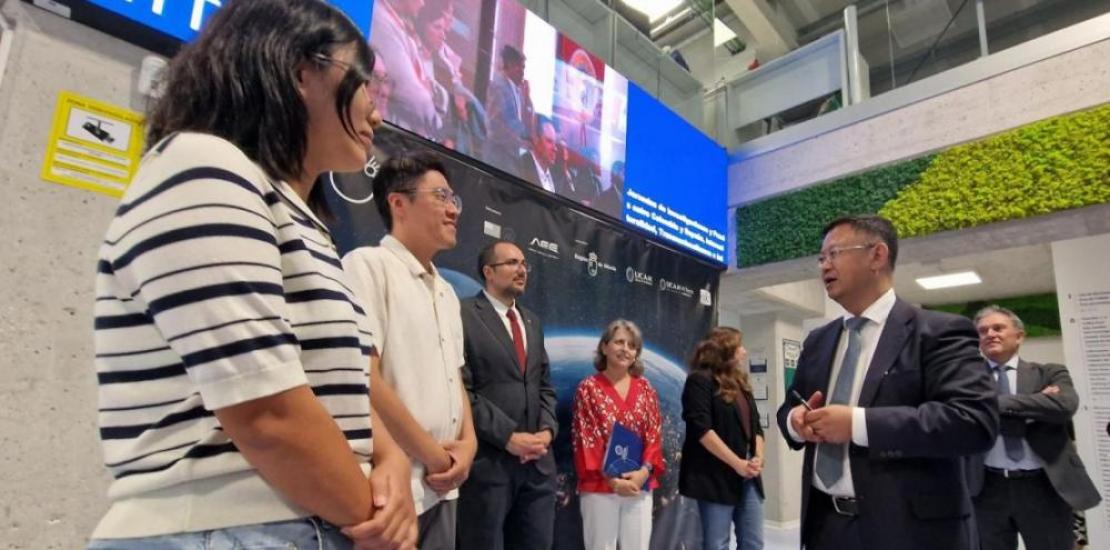UCAM receives an institutional delegation from China to promote collaboration
Representatives of the Chinese Embassy in Spain, Three Gorges Europe, the Fundación Cátedra China (China Chair Foundation) and the newspaper La Verdad visit the Los Jerónimos Campus to learn about the University's research, innovation and entrepreneurship projects
UCAM has received the visit of an institutional delegation headed by Qu Xun, Minister Counsellor of the Chinese Embassy in Spain, accompanied by representatives of Three Gorges Europe, the China Chair Foundation, the newspaper La Verdad and various Chinese and Spanish companies and organisations. The aim of the meeting was to strengthen relations between the Asian country and the university, exploring new opportunities for collaboration in academic, scientific and business matters.
The delegation was made up of more than twenty institutional and business representatives, including Libo Zhai, chief representative of the China Council for the Promotion of International Trade (CCPIT); Li Nan, commercial manager of China Energy Engineering Group; Tang Yuanjie, President of China Three Gorges Europe; Xiaoliang He, Deputy General Manager of the Industrial and Commercial Bank of China (ICBC); Marta Montoro, Director General of the China Chair Foundation; and Fernando Díaz Ortín, Head of the International Department of the Instituto de Fomento de la Región de Murcia (INFO). They were received by Estrella Núñez, vice-rector of Research; Antonio Semitiel, Director of Communication; VanDyck Silveira, Director of Global Strategy; and Marco Bruno, Director of International Development at UCAM.
The visit began at the Monastery of Los Jerónimos, the University's headquarters, where the visitors learned about the history of this emblematic 18th century building, as well as the cornerstones of the work carried out at UCAM in the areas of teaching, research, social commitment, internationalisation and sports, as well as the collaboration agreements and projects that have been carried out for years with universities and institutions in China. The delegation then moved on to the UCAM HiTech, the innovation and entrepreneurship centre, where the institution's main research and technology transfer projects were presented.
During the tour, the attendees were able to learn about the work of the UCAM SENS research group, where the researcher Xing Xuan, recently recognised by Stanford University as one of the 2% of the most influential scientists in the world in his field, and the doctoral student Yuxin Chen, both members of the group, carry out their work. Isabel Díaz, project manager and coordinator of UCAM SENS, also participated in the meeting.
The Chinese representatives were particularly interested in the lines of work that UCAM develops in the field of scientific innovation and entrepreneurship, seeing how the UCAM HiTech centre connects university research with the business fabric, generating a direct impact on society.
In his speech, Qu Xun expressed his appreciation of the UCAM model, highlighting the balance between the tradition of a university located in a historic monastery and the modernity of cutting-edge scientific facilities, also underlining the many connections with China that the institution already maintains and the desire that these will continue to be strengthened in the future.




